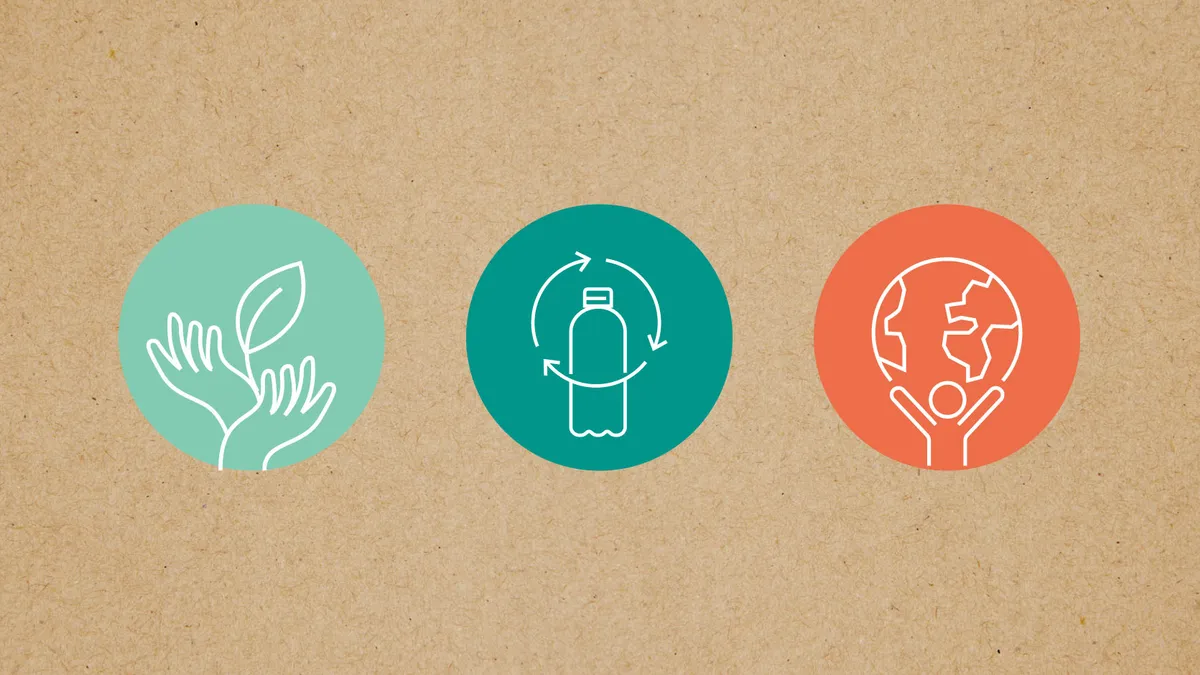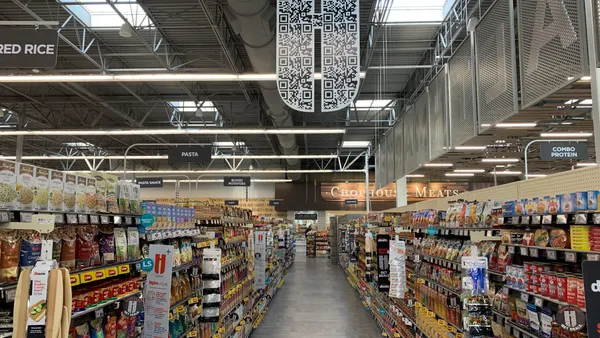Dive Brief:
- In response to growing consumer demand for more sustainable products and business practices, Target unveiled a list of environmental and equity goals for the next two decades through an initiative dubbed "Target Forward."
- Target plans to make 100% of products under its private labels "designed for a circular future" by 2040, including by producing more recyclable, durable and sustainably sourced items, according to a press release Tuesday.
- By that time, Target said it also plans to be a "net zero enterprise," which means producing net-zero emissions throughout its operations and supply chain, and zero waste to landfill in its U.S. operations, per the release.
Dive Insight:
Target, along with other retail giants, is beginning to respond to environmental concerns as more consumers and investors equate sustainability with business growth.
The retailer's initiatives also include shorter-term goals around equity, like increasing Black employee representation by 20% in two years and overall building a team that adequately reflects Target's customer demographic by 2030.
Target said it plans to be the market leader for producing inclusive brands and experiences by 2030. Its list of goals is part of the company's vision of co-creating "an equitable and regenerative future" with its customers and business partners.
"As a company and a member of the global community, it's imperative for the health of both our business and our planet that we embrace new ways to move forward," Brian Cornell, chairman and chief executive officer of Target, said in a statement.
More investors are acknowledging climate change as a business risk, a survey from Kearney's 2020 FDI Confidence Index indicates. The report shows that 77% of investors would include climate change as a consideration in their investment decision calculus in the next few years.
Companies are aware of this risk too. In a recent joint letter to President Joe Biden and members of congress, 47 U.S. companies, including Walmart and Amazon, encouraged the creation of a bipartisan solution to the climate crisis.
Target said it has trained over 2,000 employees on circular design principles and has begun designing several private labels — such as Everspring, Universal Thread and All In Motion — to include sustainably sourced or recycled materials. The company also secured three solar and wind energy contracts earlier this year and made financial investments in social justice causes in recent years.
"We know sustainability is tied to business resiliency and growth, and that our size and scale can drive change that is good for all," Cornell said. "Target Forward influences every corner of our business, deepens our collaboration with our partners and builds on our past efforts to ensure a better future for generations to come."













